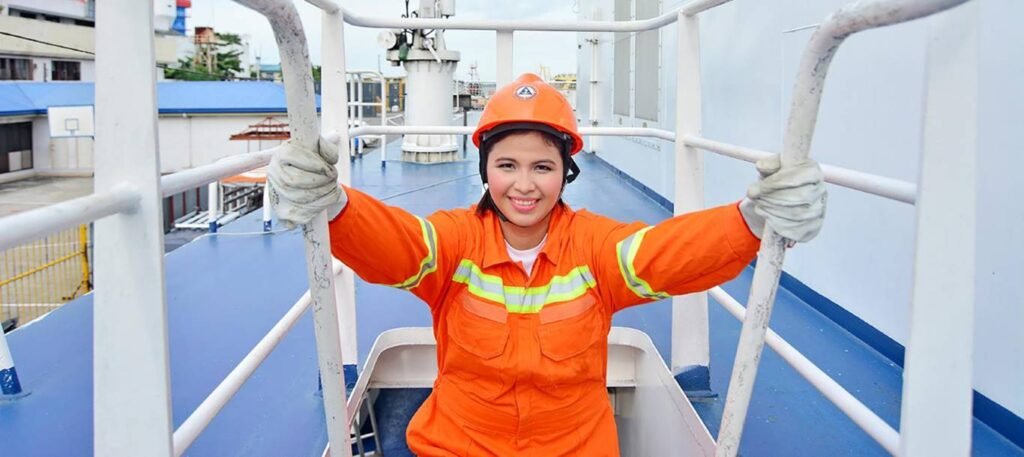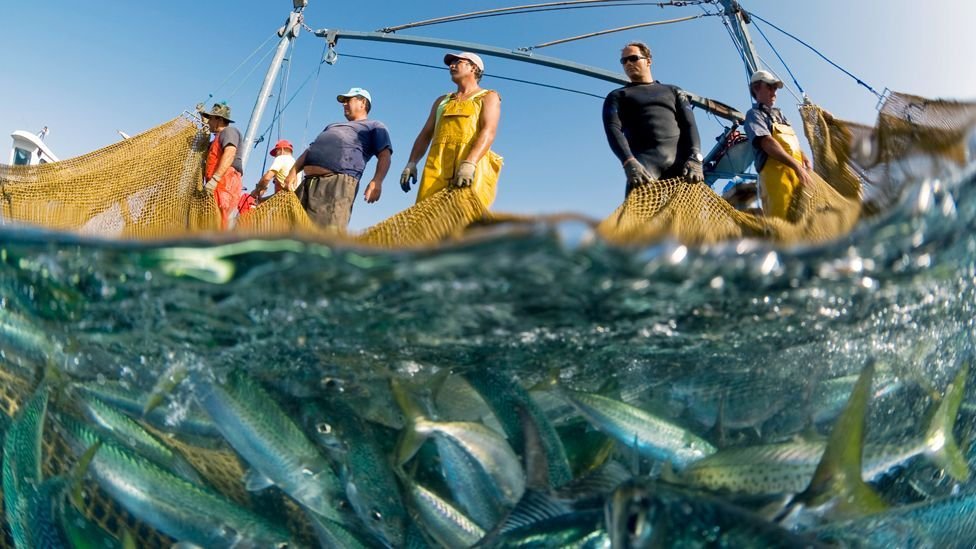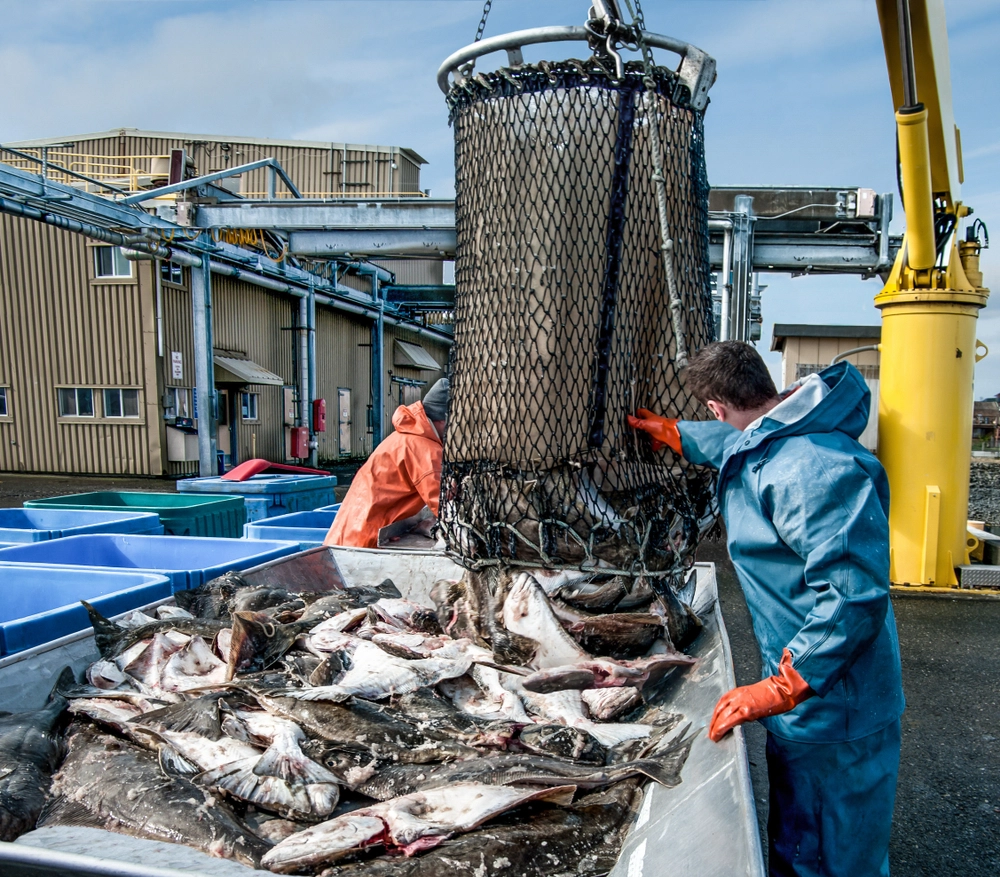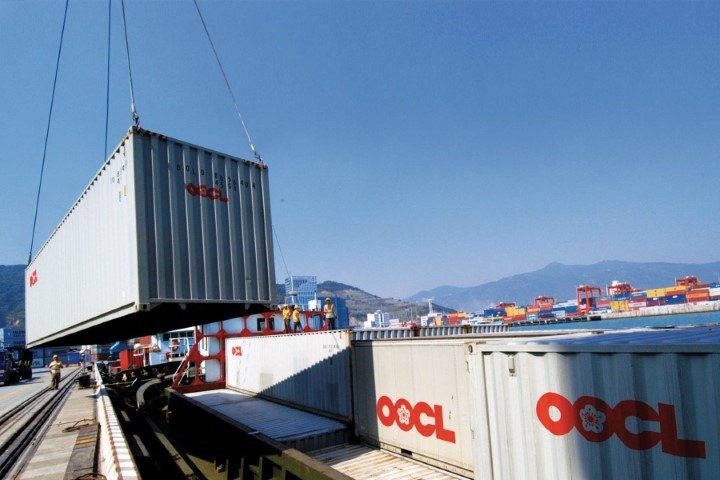The job opportunities at sea in the marine industry can vary in terms of job security, compensation, and overall job satisfaction. However, the industry as a whole offers a wide range of job opportunities and a unique work experience that can be both challenging and rewarding.
Some job opportunities in the marine industry, such as working in offshore oil rigs, can offer high salaries and benefits, but may also involve long hours and time away from home. Other jobs, such as working on ferries or cruise ships, can offer a more stable work schedule, but may require employees to work in close quarters with others for extended periods.
Jobs in commercial fishing and research at sea may offer unique experiences, but may also involve physically demanding work and exposure to hazardous conditions.
The marine industry also offers job opportunities in port operations, transportation and shipping, marine engineering, and government positions. These jobs can offer stability and a more predictable work schedule, but may require specialized education and training.
Overall, the marine industry can offer a unique work experience that is not found in other industries, but the job opportunities can vary in terms of job security, compensation, and work-life balance. Those considering a career at sea should carefully weigh the potential benefits and drawbacks before making a decision.
- 10+ New Job Opportunities in Marine Industry – 2023
- 1. Working as a Seafarer/ Merchant mariner
- 2. Jobs in Port operations
- 3. Working in Marine engineering
- 4. Fishing
- 5. Jobs in Maritime law
- 6. Work in Offshore Rigs
- 7. Job opportunities Ferries and Cruise Ships
- 8. Jobs in Commercial Fishing
- 9. Research and Science at sea
- 10. Transportation and Shipping
- 11. Government Positions in Marine Industry
10+ New Job Opportunities in Marine Industry – 2023
1. Working as a Seafarer/ Merchant mariner

Merchant mariners work on cargo ships, tankers, and other vessels that transport goods and materials across oceans and waterways. They may serve as deckhands, engineers, or officers, and are responsible for operating and maintaining the vessel, ensuring safety regulations are met, and navigating the ship.
It is a career path that offers opportunities for advancement and growth, as well as the satisfaction of being part of a vital industry that helps to keep the world connected and moving forward
Read More 50+ Facts about Marine Industry
2. Jobs in Port operations
Port operators are responsible for managing the day-to-day operations of ports and harbors. This includes overseeing cargo handling, coordinating vessel traffic, and managing the maintenance and repair of port facilities.

Working in port operations can be an exciting and dynamic career choice. It involves managing and coordinating the movement of goods and materials in and out of ports. Jobs in port operations can include roles such as dockworkers, crane operators, logistics coordinators, customs brokers, and more.
Working in port operations requires excellent organizational and communication skills, as well as the ability to work in a fast-paced and ever-changing environment. Employees may work in shifts and be required to work weekends and holidays.
Safety is a top priority in port operations, and employees receive extensive training to ensure the safety of themselves and others. There are opportunities for career advancement and growth in port operations, with positions such as operations managers and port directors offering increased responsibilities and higher salaries.
Also read 14 Major Ports in India – List, Location & Facts
3. Working in Marine engineering

Marine engineers design and build ships and other marine structures, such as offshore oil rigs. They also work on the development of new technologies and systems for marine transportation and energy production.
Marine engineering is a field that focuses on the design, development, and maintenance of ships, boats, submarines, and offshore platforms. Marine engineers are responsible for ensuring the safety and reliability of the vessel’s propulsion systems, electrical systems, and other onboard equipment.
Marine engineering requires a strong understanding of physics, mathematics, and engineering principles. It involves designing and testing new equipment, as well as maintaining and repairing existing systems. Marine engineers may work on the design and construction of new vessels or be responsible for maintaining and repairing existing ones.
In addition to technical skills, marine engineers also need excellent communication and project management skills, as they often work as part of a team and may need to collaborate with other professionals, such as naval architects and shipbuilders.
Overall, marine engineering is a challenging and rewarding career choice that offers the opportunity to work on exciting and innovative projects while contributing to the safety and efficiency of the marine industry.
Also Read Unmanned Machinery Space (UMS) on Ships and its Essential Requirements
4. Fishing

Fishing is another important sector of the maritime industry. Fishermen work on commercial fishing boats, catching fish and other seafood for sale to markets and restaurants. Fishing involves catching fish and other marine species for sale and distribution to markets and restaurants. This can include recreational fishing, subsistence fishing, and commercial fishing.
Jobs in commercial fishing can include roles such as deckhands, captains, engineers, and processors. Fishing vessels may operate in offshore or coastal waters and can be small or large, depending on the type of fishing and the species being caught.
Working in commercial fishing requires physical fitness and endurance, as employees may work long hours and in adverse weather conditions. Safety is a top priority in commercial fishing, and employees receive extensive training to ensure their well-being.
Recreational fishing can be a hobby or pastime, and can involve catching fish for personal consumption or catch-and-release. It requires a fishing license, knowledge of local fishing regulations, and appropriate gear and equipment.
Also read Fishing Vessels – Types of Fishing Boats
5. Jobs in Maritime law

Lawyers specializing in maritime law work on legal issues related to the maritime industry, such as shipping contracts, maritime accidents, and environmental regulations. Maritime law, also known as admiralty law, is a specialized area of law that governs maritime activities and commerce. It covers a wide range of legal issues related to shipping, navigation, marine commerce, and marine environmental protection.
Maritime law includes international treaties, national laws, and industry standards that regulate the conduct of maritime commerce and the rights and responsibilities of shipowners, seafarers, and other maritime stakeholders. This includes issues such as vessel registration, marine insurance, maritime liens, marine pollution, and piracy.
Jobs in maritime law can include roles such as maritime lawyers, marine insurance underwriters, maritime claims adjusters, and legal counsel for shipping companies. These professionals may work for law firms, insurance companies, government agencies, or shipping companies.
6. Work in Offshore Rigs
Offshore rigs are located in remote and often harsh environments, such as the open ocean, which require employees to have a high level of physical and mental stamina, as well as adaptability and problem-solving skills. Jobs in offshore rigs may involve working in shifts of several weeks at a time, which can mean being away from home and loved ones for extended periods.
However, working in offshore rigs can offer good salaries, benefits, and opportunities for career advancement. Jobs in offshore rigs can include roles such as drilling engineers, technicians, roughnecks, and roustabouts, among others.
Safety is a top priority in offshore rigs, and employers invest in extensive safety training and equipment to ensure the well-being of their employees. Overall, working in offshore rigs can be a challenging but rewarding career path that offers unique experiences and opportunities for growth and advancement.
7. Job opportunities Ferries and Cruise Ships

It involves providing services to passengers who are traveling for leisure or business purposes. Jobs on ferries and cruise ships can include roles such as deckhands, cooks, servers, bartenders, entertainers, and more.
Working on a cruise ship or ferry requires excellent customer service skills, as employees are responsible for creating a welcoming and enjoyable experience for passengers. It can be a fast-paced and dynamic environment, with long hours and demanding schedules, but it also provides opportunities to travel and experience new cultures.
Also read Top 10 Cruise Ships And Passenger Vessels That Sank
8. Jobs in Commercial Fishing

Jobs in commercial fishing can include roles such as deckhands, captains, engineers, and processors. Fishing vessels may operate in offshore or coastal waters and can be small or large, depending on the type of fishing and the species being caught.
Working in commercial fishing requires physical fitness and endurance, as employees may work long hours and in adverse weather conditions. Safety is a top priority in commercial fishing, and employees receive extensive training to ensure their well-being.
9. Research and Science at sea
Research and science at sea involves conducting scientific studies and experiments on marine life, oceanography, and other marine-related fields while on board research vessels. This can include collecting data, samples, and specimens, analyzing and interpreting results, and publishing research findings.

Jobs in research and science at sea can include roles such as marine biologists, oceanographers, geologists, and meteorologists. These professionals may work for universities, government agencies, non-profit organizations, or private companies.
Working in research and science at sea requires strong technical skills, including the ability to operate and maintain sophisticated scientific equipment. It also requires excellent communication and collaboration skills, as scientists and researchers often work as part of a team.
Working at sea can be challenging, with employees often working long hours and in challenging conditions. Safety is a top priority in research and science at sea, and employees receive extensive training to ensure their well-being.
10. Transportation and Shipping
Transportation and shipping are essential components of the global economy, enabling the movement of goods and products from one location to another. The transportation and shipping industry includes a wide range of job opportunities, from truck drivers and cargo handlers to logistics coordinators and shipping agents.

Jobs in transportation and shipping can include roles such as pilots, truck drivers, freight handlers, customs brokers, and supply chain managers. These professionals may work for shipping companies, transportation providers, logistics firms, or government agencies.
Working in transportation and shipping requires strong organizational and communication skills, as well as the ability to work in a fast-paced and ever-changing environment. Employees may work in shifts and be required to work weekends and holidays.
Also read Top 10 Biggest Container Shipping Companies in World (2023)
11. Government Positions in Marine Industry
Government positions in the marine industry can include jobs at the federal, state, or local level. These jobs may involve regulatory, policy-making, or operational roles that impact the marine industry.
Jobs in government positions can include roles such as marine inspectors, port security officers, marine resource managers, and oceanographers. These professionals may work for government agencies such as the U.S. Coast Guard, National Oceanic and Atmospheric Administration (NOAA), Environmental Protection Agency (EPA), or state and local environmental agencies.
Working in government positions requires a strong understanding of government policies and regulations, as well as the ability to work collaboratively with other agencies and stakeholders. Employees may be required to work in a fast-paced and ever-changing environment, with the ability to adapt to changing priorities and needs.
- Methane Slip – Shipping’s Growing Decarbonisation Threat
- What happens to Ship scrap?
- The Old Sailor Poem by Margaret Elizabeth Sangster
- What’s new in OCIMF SIRE 2.0 – Changes in Sire 2.0
- 10 Best Boat/Ship Movies of All Time

